Tech
-
 Tech
TechCool Jobs: The power of wind
Science and engineering careers explore all aspects of wind, from terrible tornadoes to aeronautics and clean energy.
-
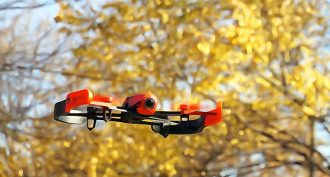 Tech
TechLost in the woods? A drone may find you
Scientists developed a new method to give drones the skills to follow hiking trails in search of lost hikers.
-
 Brain
BrainWhen smartphones go to school
Students who use smartphones and other mobile technology in class may well be driven to distraction. And that can hurt grades, studies show.
-
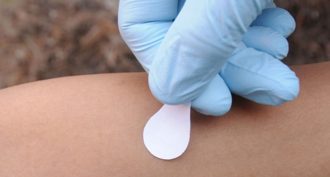 Tech
TechOuchless measles vaccine could save lives
A new ‘ouchless’ vaccine patch that uses dissolving microneedles could make efforts to vaccinate against measles more practical.
-
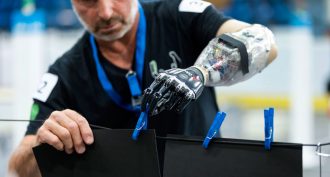 Tech
TechNew devices coming to assist the disabled
New technologies, including motorized prosthetics and stair-climbing wheelchairs, could someday help people overcome a range of disabilities.
By Sid Perkins -
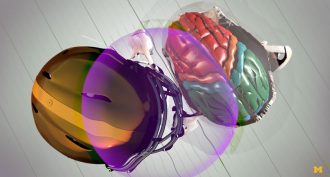 Tech
TechNew football helmets could limit brain injuries
A new design for football helmets uses three layers to absorb energy from repeated impacts. The result should be fewer athletes with brain injuries.
-
 Animals
AnimalsPicking a better porch light
Lights can vary in brightness and ‘color’ — even those that are sold as white. A new study tested which lights attracted the most bugs.
By Sid Perkins -
 Microbes
MicrobesPowered by poop and pee?
Scientists are developing methods to not only remove human waste from wastewater, but also to harness the energy hidden within it.
-
 Chemistry
ChemistryNew bendy device could power wearable electronics
A new device with lithium and silicon electrodes uses chemistry to generate electricity as it bends back and forth.
-
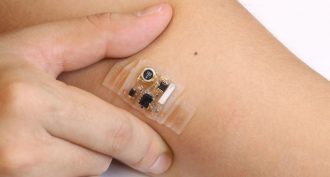 Tech
TechCool Jobs: Making electronics to wear
Forget tablets and cell phones. These flexible electronic devices stick to the skin and can perform many tasks, from taking your temp to tracking the sun’s tanning rays.
-
 Animals
AnimalsWhy some penguin feathers never freeze
Oil and tiny pores prevent the feathers on some penguins from freezing. The discovery could inspire new ways to keep ice off of airplane wings.
By Andrew Grant -
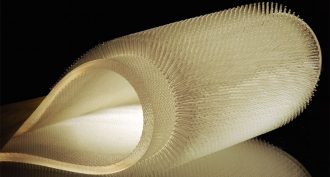 Materials Science
Materials ScienceWet suits with hair?
The dense hair that keeps sea otters warm in frigid waters may inspire development of “furry” wet suits for scuba divers.
By Sid Perkins